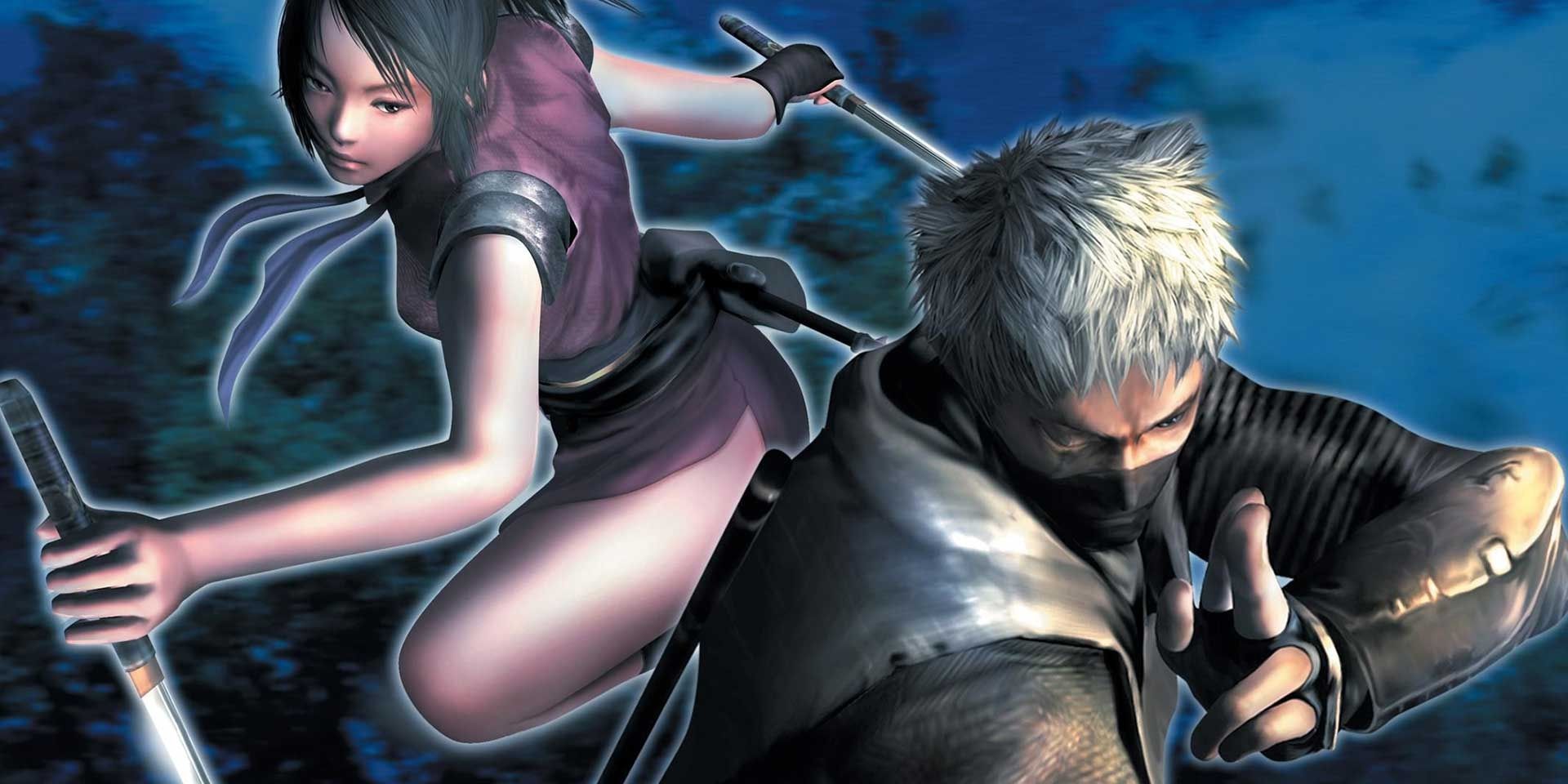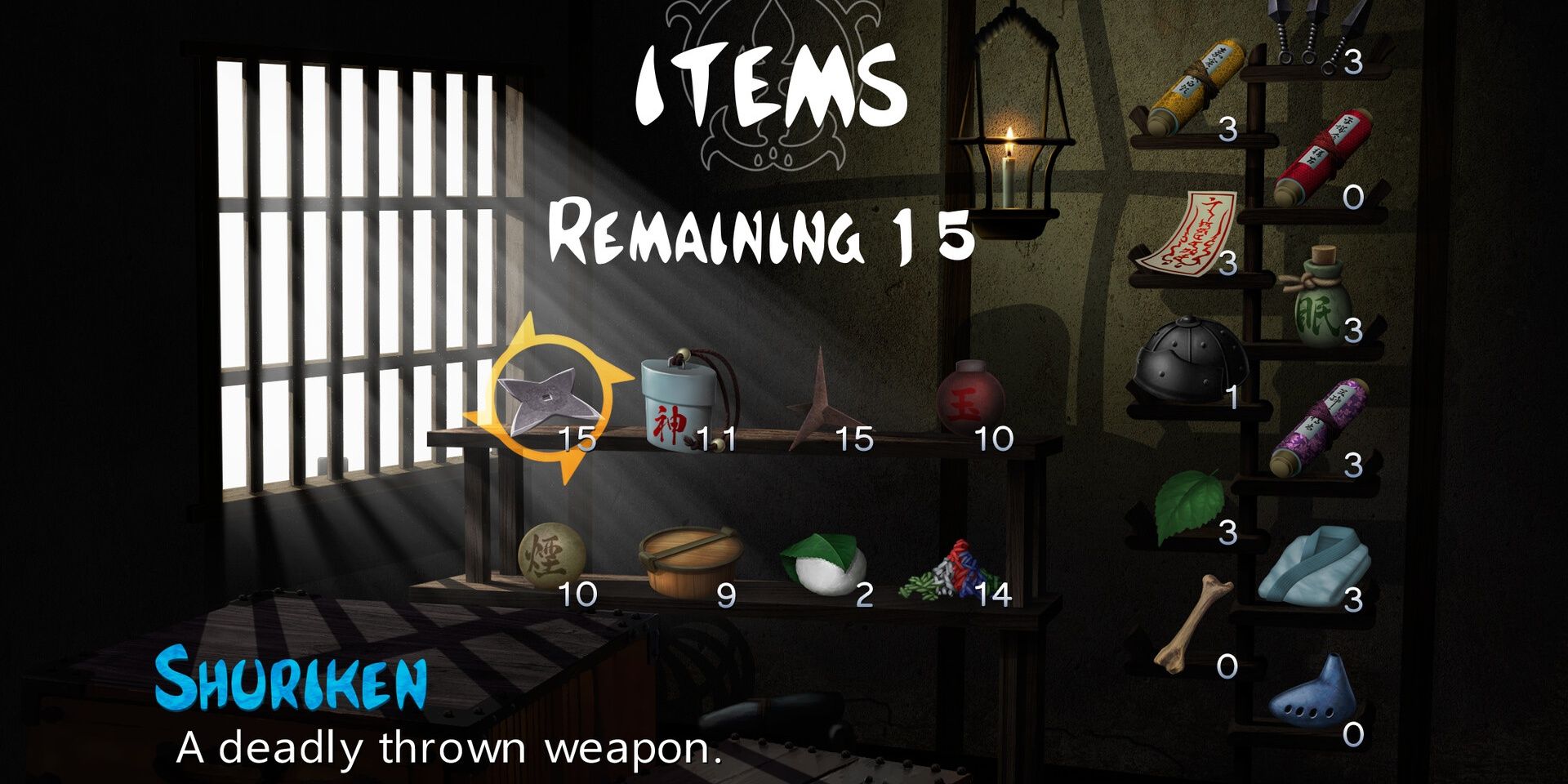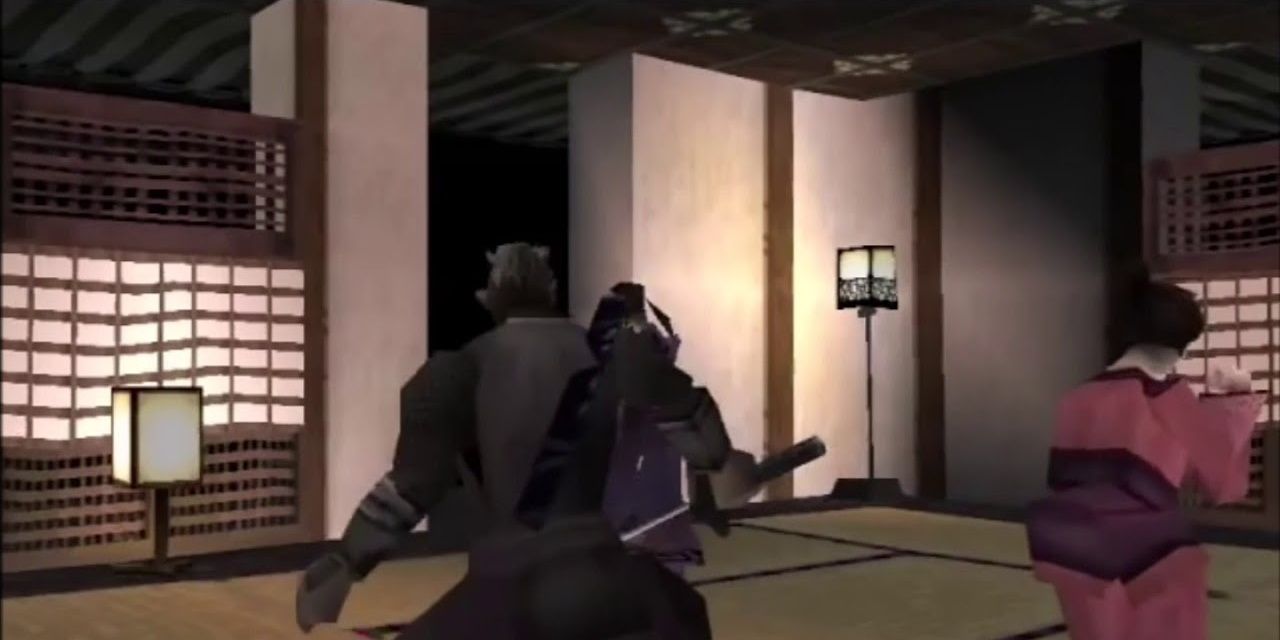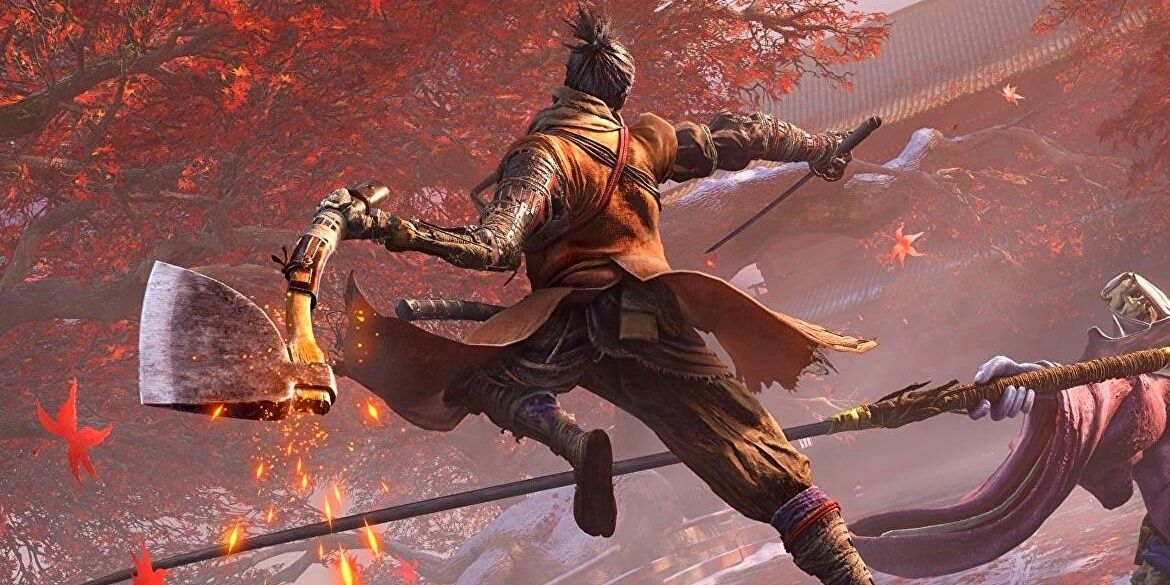The term “ninja” may drum up images of different characters - masked mutant reptiles in New York learning to fight and eating pizza with their rat master, maybe Joe Musashi sporting his cool red copper gauntlets. However, my ideal ninja archetype is closer related to a prematurely grey-haired disciple of Azuma ninjitsu: Rikimaru, warrior/defender of the Ghoda realm.
Tenchu: Stealth Assassins was and will always be a seminal ninja game that not only launched a franchise, but gave the world a 3D peek into the medieval Land of The Rising Sun, via game console. Will another Tenchu emerge from the shadows, or are we just waiting in vain on our couches?
They were phantoms, shadow assassins, warriors trained to infiltrate and disappear without a trace. The trick lay in three crucial elements: killer toys, killer skills and killer clothes. Oh, and stealth. This was fundamental and imperative. You’d never spot a ninja whistling a tune down the street in broad daylight, or one loudly bumping his knee on a daimyo’s coffee table. Sneaking was part of the trade.
In 1987 and 1990, the first batch of Metal Gear games introduced players to the idea of hiding from enemies via crouching, time-alert systems and items used for distraction. Then the year 1998 came and everything changed with the release of two franchise-launching games: Metal Gear Solid and Tenchu: Stealth Assassins.
Acquire Studios was established by the visionary Takuma Endo in Nagoya, Japan, just as the first Playstation console was released into the Japanese market. Over the next four years, Endo and his team of most-honorable developers trained, toiled and tweaked their budding ninja gem. During that period, Playstation released a few titles that Acquire studied and drew inspiration from. According to a 1998 interview, Endo admits that he was inspired by gaming trends of the time. “As far as we know, Metal Gear Solid is planning on using many of the same game elements as Tenchu. This pressure has worked in a good way for us and consequently it has made us utilize the genuine Japanese world to its best.”
The setting blew the door wide open. With Tenchu, never before had such a sweeping depiction of Sengoku-era Japan been experienced on a gaming console. Each time I took up the controller to play, the confines of my North Carolina living room dissolved into the midnight of a mystical land. I am here again. Blossoming sakura trees line the courtyards of imposing midieval castles. After silently grappling onto one of the many hanging eaves, my padded feet race across the footsteps with steely resolve. Later, in another mission, pure white snow falls gently to the ground next to crimson pools of blood from a castle guard. Paper-thin shoji doors lead the way into tatami-floored rooms where friend or foes await—but mostly foes. Corrupt finance ministers, Spanish pirates, deranged cult members and demonic warriors are all cut down indiscrimiantly by my katana blade. There is no rest until Princess Kiku is safe and my Lord Gohda's house is secure again. I distinctly remember sitting next to my brother and wanting to live in this kind of Japan, but perhaps with a little less throat-slitting.
The stealth focus was unprecedented. While both Tenchu and Metal Gear Solid incorporated it, only Tenchu wrapped its entire 3D gaming mechanics around it. The level ranking system basically hinged on these clandestine attacks, especially when each victim received a cutscene death straight out of ninja flick. Out of the potential five rankings (Thug, Novice, Ninja, Master Ninja and Grand Master), only achieving the Grand Master rank would unlock a new ninja item. A couple of these juicy treats really added some pep to your killing spree.
However, it was entirely possible to earn a Grand Master ranking with only the standard alloted accoutrements: the ever-handy grappling hook, healing potion, shuriken (throwing stars), portable landmines and poisoned rice. In fact, the innocuous ball of toxic rice was one of the most practical in your arsenal, after the grappling hook. A simple toss within an enemy's eyeshot and they would slowly stroll over and bend down to retrieve the onigiri, oblivious to anything else happening around them. There's no rush to sneak up behind and deliver the death blow. And, as a bonus, if the rice ball is uneaten, you could pocket it afterwards and perform the deadly bait-and-switch again down the road.
Then there was the human aspect. Ninjas were no immortals, but hit men—albeit super super cool hit men. Takuma Endo explains in a Metro interview that his desire was to portray both the human and superhuman qualities of his ninjas. “We absolutely wanted to make something that showed someone, although obviously at the peak of physical ability and highly capable, that is still human and fallible, and able to lose and to die.”
After Tenchu, the next offering from Acquire featuring a new ninja ally other than the silver-coiffed Rikimaru. 2005's Shinobido incorporated many of the same ninja techniques learned from Tenchu. Enemy alerts and stealth kills were a core element to the game, as well as "executions", with successful stealth kills granting players a 3-4 second cinematic animation depicting the death. Granted, a ninja's arsenal isn't super diverse, but one look at the inventory in Shinobido, and a close comparison to Tenchu's own weapons can be made.
Then there was FromSoftware’s infuriating—yet award-winning—shinobi game. The developers are no strangers to the Tenchu series, having produced several of the latter series themselves. In fact, from an interview with FromSoftware president Hidetaka Miyazaki, Sekiro was the closest thing to a new Tenchu. “A lot of influence came from Tenchu. We even pondered upon making Sekiro: Shadows Die Twice a part of the Tenchu series at first”.
Indeed, familiar elements abound: stealth mechanics, grappling hook, bloody kills. However, one significant difference with Sekiro is that stealth is merely optional. There's no motivation to get sneaky save for the fact that it's a more efficient way to off your opponent and will save you some trouble in the future. In Tenchu, at least you're rewarded for your covert ops. Even the beloved grappling hook is used on a case-by-case basic, as opposed to being indispensable.
Even once the Tokugawa regime consolidated Japan, their attempts to wipe out the ninja ultimately failed. You just can’t kill a ghost. Similarly, the influence of the Tenchu series will never vanish. It has been ushered into the immortal realm and is still considered the gold standard in ninja gaming.
Time will tell if another specifically Tenchu-like game will surface, but until then, we should patiently wait and be content with our current brother ninjas. Yes, that includes pizza-munching reptiles too. Cowabunga.




